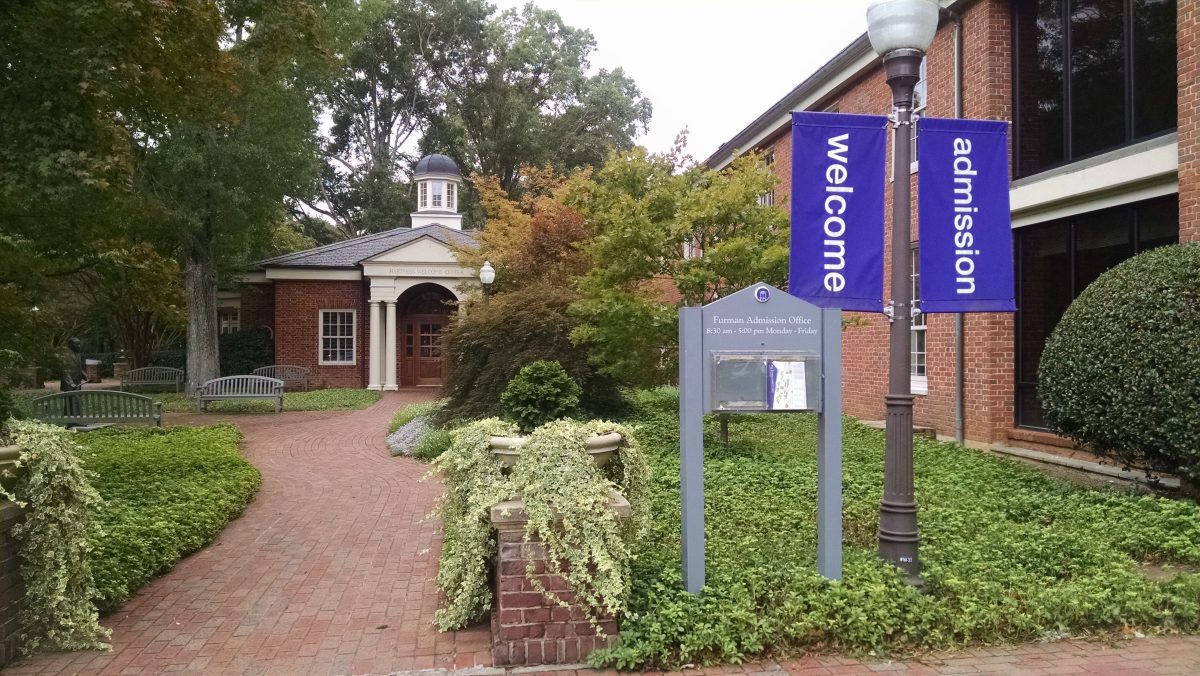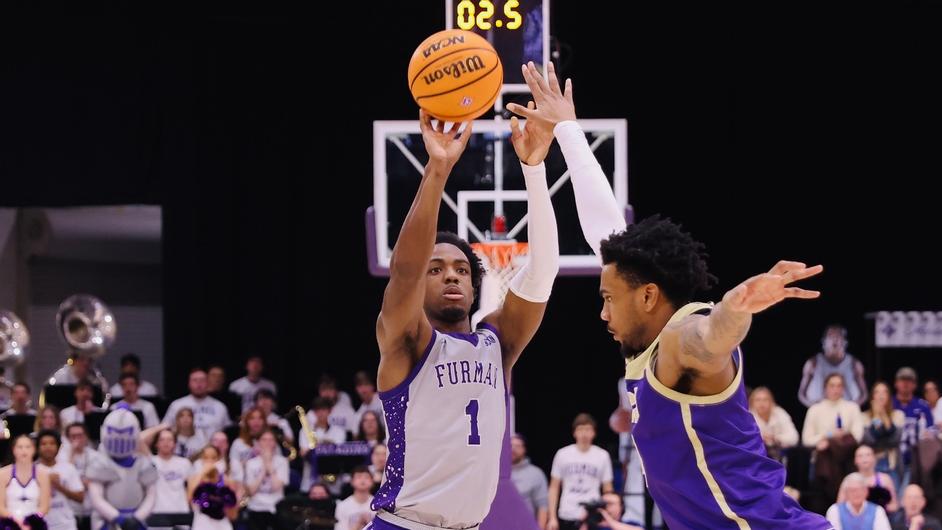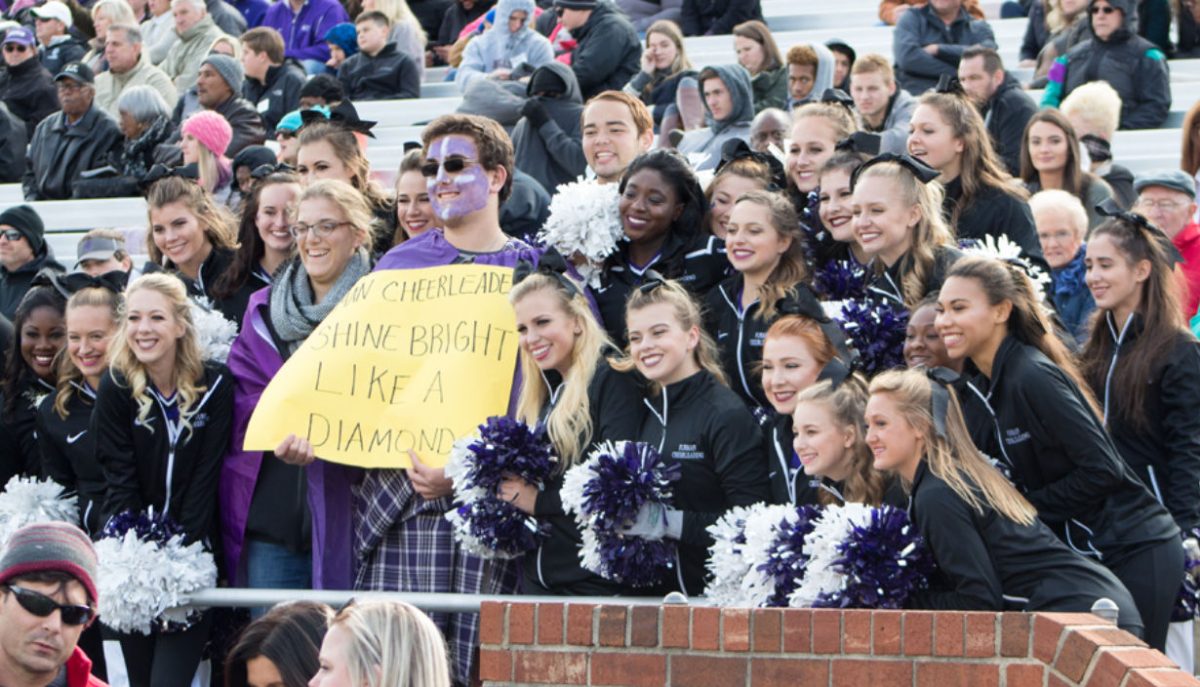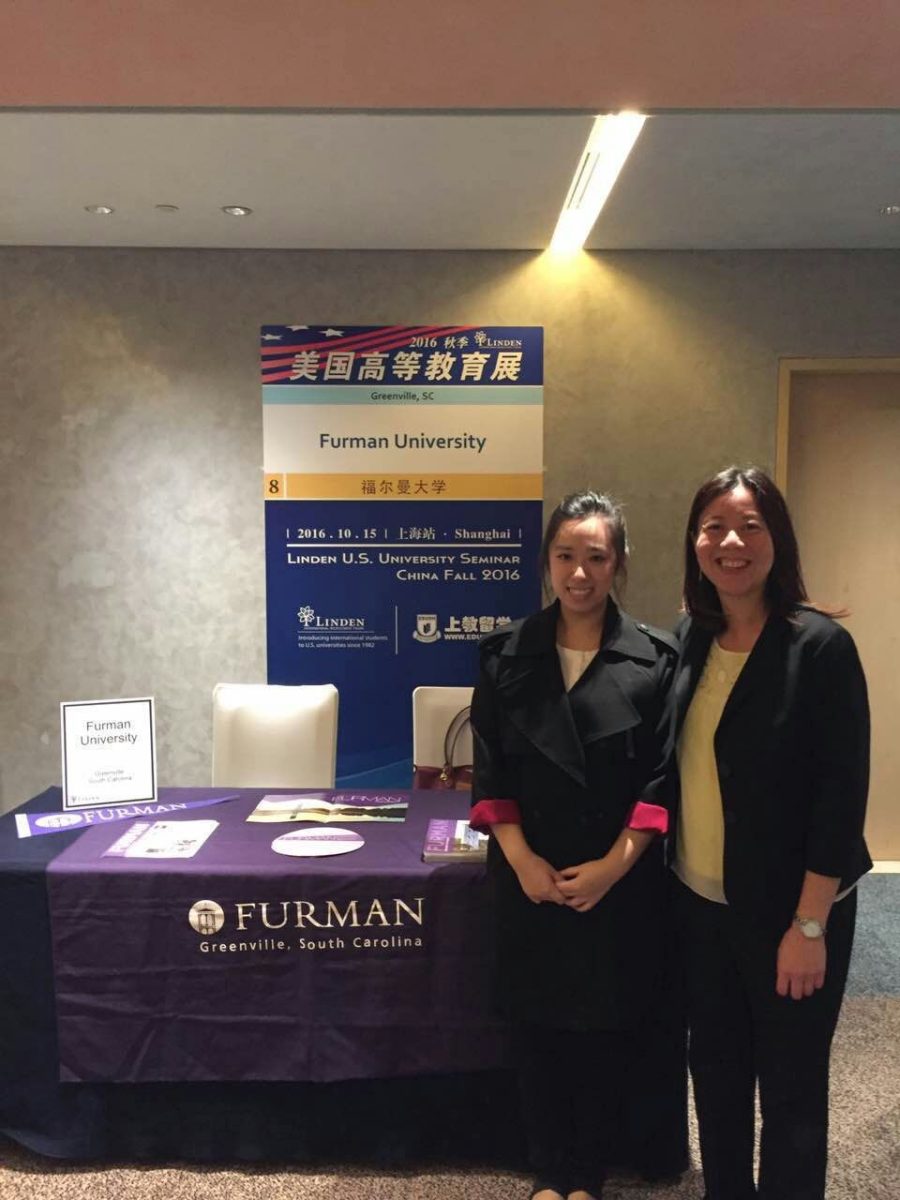
Sixteen months into her new role, President Elizabeth Davis, Ph.D. is ready to begin implementing her Furman visions, specifically focusing on widening the community and increasing enrollment knowledge, according to a recent email sent to the Furman community Mon., Sept. 21.
“Today, after a year as part of this University, three phrases come to mind: Education that transforms. Communities that prosper. Lives that matter,” Davis wrote in the email.
Davis recognizes an established sense of on-campus connection among classes, faculty conversations, extracurricular activities and even residential life, but also sees potential for community growth beyond the gates.
“I would like it to seem more widespread for students to have connections with community leaders, whether it’s in their majors to talk about what are career opportunities,” Davis said. “But I also think it’s important for our students to think about what it means to be a citizen in this democracy [and] a citizen in the community … it’s not all just about work.”
Increasing that sense of community is impossible without a student body who has similar goals, though, and that is where the hiring of Michael Hendricks, Ph.D. is beneficial, Davis says.
Hendricks was hired during the summer as vice president for enrollment management. Hendricks joins Furman after serving as vice president of Catholic University in Washington, D.C., where he helped achieve an 83 percent enrollment increase in just 10 years.
“He’s an experienced enrollment management professional, and enrollment management is more than just admissions – it’s about attracting, supporting, retaining students and understanding the kinds of services that we need to offer,” Davis said about Hendricks.
While Davis does not see the student body exceeding the seams of the residential facilities’ capacity of 2,800-2,850, she sees other benefits in Hendricks’ hiring.
“He understands how to identify students and communicate with students who would want the Furman experience, and that’s what we really need to do a better job of in my opinion,” Davis said. “It’s being very clear about the value of the Furman experience and finding the students who want that.”
In order to help determine what such prospective students are looking for during the decision-making process, Furman and the Board of Trustees hired Arts & Sciences, LLC, a consulting firm based out of Baltimore, MD. The firm has been collecting data throughout the past year, trying to understand why students accept or deny their admission into the university.
Cost of tuition is one of the major factors being tested. Researchers are asking several questions that would help the university make hard decisions about tuition, such as, “What if we lowered price? Would that drive greater demand? What would we have to do with the scholarships? What if we increase price?”
Researchers are tracking students currently applying to schools, anonymously asking them what factors in addition to price influences their decisions and how Furman fits into those decisions.
“That’s the thing that’s so compelling about the way they did it…their methodology captures students while they’re making a decision,” Davis said. “It’s really capturing their behavior, not just, ‘What do you think of Furman?’ People can have great impressions of Furman, but if they still don’t choose to come, we are really looking at those factors that will tip them one way or another.”
Results of the yearlong study will be presented to the Board of Trustees in its October meeting, and while some findings can be applied to university function within the year, Davis predicts complete implementation will be a “longer term process.”









































